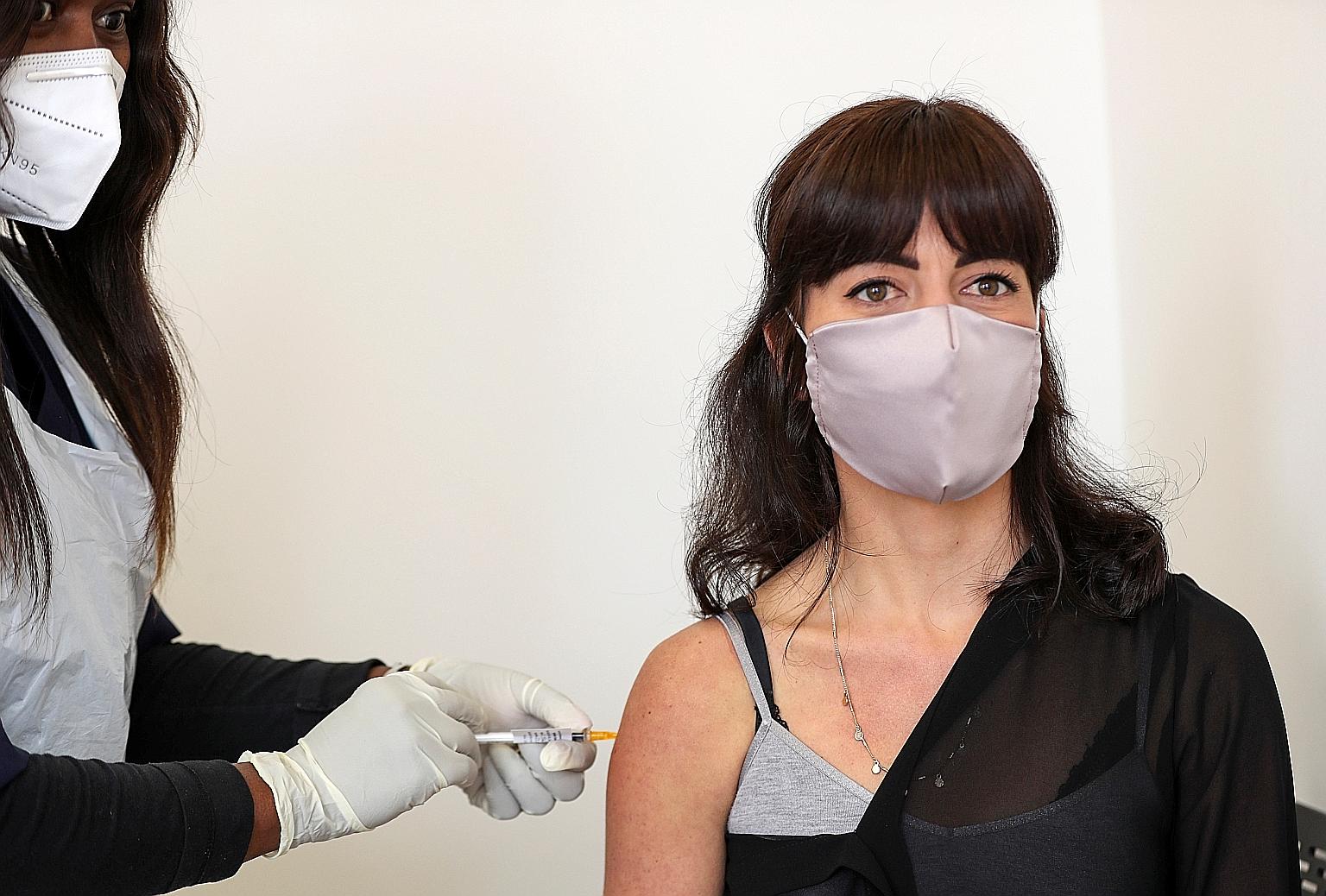Vaccine setbacks
Vaccine confidence volatile, vulnerable to misinformation
Sign up now: Get ST's newsletters delivered to your inbox

A volunteer in Johannesburg, South Africa, being injected in a Covid-19 vaccine trial last month. The study found that scepticism about vaccine safety tended to grow alongside political instability and religious extremism.
PHOTO: REUTERS
LONDON • Political polarisation and online misinformation are threatening vaccination programmes worldwide, with public trust volatile and varying widely between countries, according to a global vaccine confidence study.
The study, which maps trends in vaccine confidence across 149 countries between 2015 and last year, found that scepticism about the safety of vaccines tended to grow alongside political instability and religious extremism.
"It is vital with new and emerging disease threats such as the Covid-19 pandemic, that we regularly monitor public attitudes," said Professor Heidi Larson at the London School of Hygiene & Tropical Medicine who led the research.
"Perceptions about vaccines are much more volatile than they used to be," she told a briefing.
Published in the Lancet medical journal, Prof Larson's findings are based on data from more than 284,000 adults who were asked last year whether they see vaccines as important, safe and effective.
She said that with drugmakers and researchers racing to develop vaccines to fight the Covid-19 pandemic, governments should now be extra vigilant about assessing public trust in vaccines, and responding rapidly to concerns.
"There's a lot of anxiety about the speed of vaccine development (for Covid-19)," she said. "But the public is not really keen on speed - they're more keen on thoroughness, effectiveness and safety."
The study's results show that vaccine confidence in Europe is low compared with other regions of the world, such as Africa, with the proportion of people strongly agreeing that vaccines are safe ranging from 19 per cent in Lithuania to 66 per cent in Finland.
Iraq, Liberia and Senegal had the highest proportion of respondents last year who agreed that vaccines are important.
The study found six countries where vaccine confidence had dropped significantly since 2015.
In Indonesia, Pakistan, Serbia, Azerbaijan, Afghanistan and Nigeria, the proportion of people strongly disagreeing that vaccines are safe had risen significantly. This, Prof Larson said, was linked to trends in political instability and religious extremism in these countries.
Indonesia saw one of the largest falls in public trust worldwide between 2015 and last year, triggered in part by Muslim leaders questioning the measles, mumps and rubella vaccine, and by local healers promoting natural alternatives to vaccines.
REUTERS


